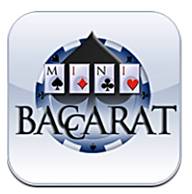Mini Baccarat Tips

Though we have already given you a strategy to use at Mini-Baccarat, varying your system of game is important. For instance, contrary to online keno, your final decision is about choosing which of the Bank hand or the Player hand you are going to bet on. There is no number to select or to predict, which is why Mini Baccarat is far more accessible.
- One first very advice we can give you is to bet on either of the two hands to win. You better avoid betting on a tie, which is an additional wager.
- Remember that the common house edge is under 1.5%. So try to define the proper strategy according to this data.
- All the number cards count as their value. All 10s and face cards are worth 10. Aces count as 1. Do not misunderstand.
- There is no hand that can be worth more than 9 at Mini Baccarat.
- You can easily determine the value of a hand that is greater than 9 using the last digit of the total –for instance use 9 for 19 or 8 for 18!
- Remember that you can make many combinations as an average shoe normally contain 82 possible hands.
- Consider that there is no good or bad hand at Mini Baccarat as the third card can change everything if required.
- Never opt for the tie bet: it has at least a 14% house edge.
- Remember that the Banker's hand has a slight edge over the Player hand. This is due to the third card rule.
- Check the stats before playing: did you know that the Bank win 38 times, the Player 36 times and the Tie only 8 times?
- The Banker hands do win because the Bank generally stands on a 7, 8 or 9.
- The Player hand stands on 6, 7, 8 and 9 but the Bank has the advantage of being able to draw on a 6. This is not the case with the Player's hand.
- The casino charge players a 5% fee each time they decide to bet on the Bank hand and eventually win. Such a shame!
- In order of potential, the most favourable cards to the Banker's hands are 9, 8, 10, J, Q and K.
- In order of potential, the most favourable cards to the Player hands are 4, 3, 2 and 5.
- Strangely enough, 6 and 8 are considered as neutral cards and might be favourable both to the Bank and the Player hands.
- We advise you to bet on the Bank's hands when there are higher chances of having high cards within the deck.
Become a better player in no time thanks to all of our articles:



